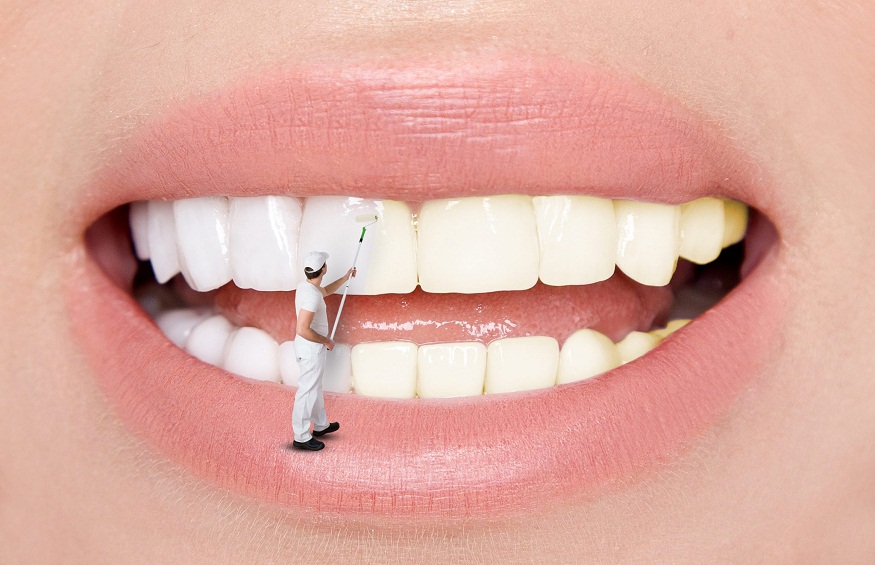Porcelain veneers have become increasingly popular in the field of dental restoration, since they cater to a variety of dental imperfections and leave clients with a brighter, self-confident smile. For aesthetic or part-for of a larger restorative plan such as All-On-4 dental implants, there are some crucial considerations to make before you head into the dentist for your porcelain veneers.
Whether you’re considering porcelain veneers for aesthetic reasons or to be the finishing touch to a more comprehensive restoration plan such as All-On-4 dental implants, this comprehensive guide will talk about essential tips before getting porcelain veneers.
1. Understanding Porcelain Veneers
Crafted on a lathe from superior porcelain, porcelain veneers replicate the appearance of natural teeth. With today’s technology, they can be individually designed to fit each person’s dental anatomy so that no one will ever know they are there. These thin shells are shaped for covering the front surfaces of teeth, to effectively cover over minor misalignments, chips and cracks, as well as discolorations in tooth colour which you would rather not see anymore.
On the other hand, unlike natural teeth, porcelain veneers simply will not stain. Porcelain veneers are a favourite of people of every age and background. They never grow old or wear out but instead, seem just like new after many long years of service.
2. Comprehensive Consultation
During this consultation, the dentist will perform a careful evaluation on your oral health to determine whether any factors such as the condition of teeth and gums, bite relationship with all of these variables in mind combined. They will also talk about your specific goals and expectations, making sure that porcelain veneers represent the end result you have in mind.
The dentist will also give you all necessary information about the procedure – including its potential dangers and benefits – to enable an informed decision to be made.
3. Candidacy for Porcelain Veneers
While porcelain veneers can solve many dental problems, not everyone is a suitable candidate for the operation. Individuals with basic dental problems such as tooth decay that has not been treated, or gum disease, or else a lot of wear and tear on the mouth might need to have their teeth fixed up before they are able to receive veneers.
Also, individuals with bruxism (pressing of teeth together during sleep) or poor oral hygiene history might not produce good results from a porcelain veneer treatment, due the fact that these factors can shorten their veneer lifespan and make them less successful in that respect.
4. Customisation and Design
One of the most important aspects of porcelain veneer treatment is the customization process since it ensures natural tooth restoration which is in perfect harmony with your own teeth and enhances your total facial look. Your dentist will work with you closely to pattern veneers which complement your smile and face features, taking parameters such as tooth line shape, size point positioning as well as grid.
Advanced digital imaging techniques may be used to create very accurate models for making moulds, thus making high quality custom-made veneers that will bring you perfect results.
5. Preparation and Placement
Before porcelain veneers may be placed, a modest quantity of enamel has to be etched off of the front portion of the teeth so that it is the correct thickness for a veneer. This initial step — customarily known as “tooth preparation” — is accomplished while the patient is comfortably numb with painkillers.
Following your initial dental visit, the dentist makes detailed drawings of the teeth that have had their surfaces etched off; these are then made into veneers at a dental laboratory by highly skilled technicians. When the veneers are ready, they are bonded to the tooth surface using strong dental adhesives. This creates a strong and long-lasting restoration.
6. Temporary Veneers
While your permanent porcelain veneers are being made, the temporary ones will protect your prepared teeth and help you keep a natural-looking smile. These provisional measures can be constructed from acrylic or resin-composite materials (like those used in white fillings). They are a bridging solution until your final restorations are ready for fitting.
7. Maintenance and Care
Good food and proper care is very important for preserving the longevity of your porcelain veneers, as well as their appearance. This means having good oral hygiene by constantly brushing, flossing and using a non-abrasive fluoride dentist’s toothpaste. It also means seeing (and following up) at regular intervals with one’s own dentist.
To prolong the life of these veneers, it is also inadvisable to develop the habit of putting hard objects in your mouth for chewing or gnawing on them (e.g., fingernails), or using your teeth as tools.
8. Longevity and Durability
With good care, porcelain veneers can last for relatively long periods of time. Though they vary in individual cases, typically they run from 10 to 15 years or more. Yet their longevity depends on various factors, including oral hygiene, living habits, as well as the quality of the veneers. Therefore regular visits to the dentist are necessary. In this way, the state of your veneers can be monitored continually and any problems that may arise are corrected, such as chipping, cracking or discoloration. In some cases, if they become chipped, then perhaps they are replaced with new ones as well.
9. Cost Considerations
The cost of porcelain veneers depends on the number required, the difficulty of the case and where you get the procedure done. Typically the total includes everything involved in having veneers made or put on. It is important to ask the dentist about costs and investigate any options there may be for payment.
10. Alternative Options
You may think of porcelain veneers as an excellent answer for many dental problems; however, the alternatives available might more suit your particular needs. For example, individuals with extensive tooth loss or those looking for a more comprehensive solution in tooth restoration may have great success through their use of All-on-4 dental implants. This innovative method places dental implants specially designed to carry a full arch of replacement teeth, providing patients with permanent and strong teeth that stay put.
Other options such as orthodontics, teeth whitening or dental bonding can also be alternatives to porcelain veneers. It is important when considering your fillings to talk all the options through with the dentist so that you can get the treatment tailored directly to your dental requirements and aims.
Conclusion
Porcelain veneers may be the answer for anyone looking to enhance their smile. By learning and understanding all the detailed information given, and by consulting a doctor who practises restorative dentistry, you can make an informed decision on whether they are suitable for you. Keep a sharp eye out for hazards: care and maintenance are your two friends if you want your veneers to last. For years, you can have a radiant and confident grin every day of your life ahead.




